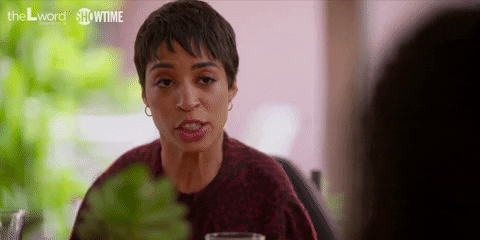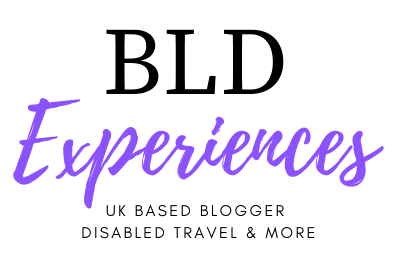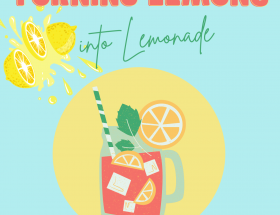Desexualisation of Disabled People
Sexuality and disability in the same sentence appear to be a rarity in mainstream conversations. The most common association of the two words are often negative. They relate to the context of disabled people not being sexual, fetishised, or disabled people’s risk to sexual abuse. Non-disabled people assume that we don’t have sexual desires and urges. But they are horribly wrong. We too love exploring our sexuality and enjoy healthy and satisfying sex lives. Now don’t get me wrong there are definitely people that do not like or desire any sexual pleasure. However, this is undoubtedly incorrect for all disabled people. Which is why Elvy and I have come together to write this blog. So, let’s all talk about sexuality, disability and all the inbetweens.
As a disabled woman, I’m constantly hyperaware of risk, however I also hold the awareness that this does not fully capture our experiences of sex.
Disabled Representation
When I [Elvy] try and think of positive representation of sex and disability in the media, only about three characters come to mind. The most recent being from the Netflix series Sex Education.
Twice this year I have seen 2 positive sexual experiences for wheelchair users. My favourite was Jillian Mercado in the L word Generation Q. It was fun, light-hearted and sexy. Seeing a visibly disabled woman in lingerie on TV. I was in awe! I loved it.

Representation can be powerful not only to the group being represented but to wider society. And so, the silence around sex and disability, and the lack of representation of disabled people as autonomous sexual beings means society in general sees our sex lives as non-existent.
The Disabled Sex Talk
One thing I hate is the amount of able-bodied people that are nosey af and like to enquire about things that have nothing to do with them. I think nearly every disabled person has had intrusive and harmful questions thrown at them. Exploring my [Elvy] sexuality had its ups and downs, and I was often met with over intrusive questions from men about whether I could have sex, and if so, how. Whilst I welcome curiosity and open conversation about sex and disability, asking a stranger about their sex lives two minutes into a conversation is rude. Yet, non-disabled people seem to feel entitled to this information about disabled people.
Now for me personally, I don’t mind that type of conversation with particular friends. Who doesn’t talk about their sex life/desires/fantasies with friends? I know I do, and it can be very entertaining! The talks that my best friend and I have and used to have about sex were always hilarious and comforting. It also really made me think more about what I would have to do, to prep for sex and how to make sure it is comfortable for me at all stages whilst also making sure I can enjoy and live on a high for that moment.
Reflections
Reflecting on this naturally made me [Elvy] think back to my experiences growing up. I too had my moments of being a typical rebellious teenager. Getting hammered in a park with friends and getting up to no good in my wheelchair. What lacked in all this though, was the exploration of my sexuality. It was assumed that yes, I fancied boys, but that’s as far as it went. So, I would listen excitedly as friends went around sharing their stories, and we would all causally skip over me to save them and myself, the embarrassment around this topic.
A close male friend [of Elvy’s] at the time shared that his girlfriend was uncomfortable with our friendship, but he reassured her there was nothing sexual because I was in a wheelchair. I laughed along, and internalised this ableism genuinely believing no man would ever look at me sexually, and I perhaps needed to suppress this part of me. The impact of this desexualisation was that I was a late bloomer in exploring my sexuality.
Exploring Your Sexuality
This is super important. Not just exploring your sexuality with other people but by yourself. Understanding your body and your likes and dislikes. It wasn’t until my [Elvy] early 20s that I started exploring my sexuality and what this meant to me. With no other disabled people around me or in the media, I sought therapy, and luckily made a lot of progress undoing year’s worth of ableism and desexualisation. I was quite similar to Elvy and felt like I started my sexual journey later than my friends and people around me. Which made me feel quite self-conscious when it came to actually doing the do lol.
Exploring sexuality is a personal and unique journey for anyone. But disabled people especially have the extra burden of ableism on top of that. As ever though, we adapt and keep going. The biggest takeaway I have is the importance of listening to your body and learning what you enjoy. Taking care of your body, making yourself comfortable, getting creative with pillows or toys that make sex fun (whether solo or with a partner), as well as communicating your needs to a partner are some useful ways of exploring sexuality; because disabled or not, sex is about fun and pleasure. If toys aren’t your thing there is always erotica or fetish groups to help you bring out your wild side and get your blood pumping.
Thinking about S E X
Sex as pleasurable as it can be, it can also be exhausting.
When I first had sex, I realised there are definitely be a few more difference to my non-disabled friends experiences’. Well in addition to me not being hetero. I need to have in mind ways to minimise my pain and discomfort. These include:
- Avoiding too much physically active beforehand (how does one do this because it’s not like it is scheduled lool)
- Keep medication close by lol. Putting my body in positions I wasn’t used to definitely meant I needed them
- Following up from the last point– EXERCISE, strengthen those muscles or just learn to laugh. Don’t feel embarrassed if your body moves in ways you didn’t expect.
Another thing I learnt is that sometimes the things I like in your head and want just don’t feel as comfortable in person. That is okay, try other stuff and not feel afraid to say no. Make sure you are opening yourself to someone you trust.
Thank you so much for reading. We both hope you enjoyed. Don’t forget to comment your thoughts and follow Elvy on twitter [@accessbyelvy].
💛 Tchau 💛










[…] tricky given the many misconceptions about disabled people. (some of which was mentioned in Sex & Disability). Most of both of our dating experiences have been through online dating. I [Elvy] tend to jump in […]